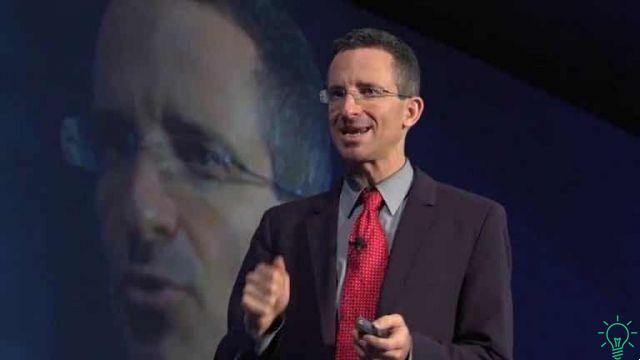
Last update: April 13, 2020
To be happy, it is not necessary to have everything we lack; we shouldn't even expect life to fulfill our every wish. Being happy means appreciating what we have in the present moment; being happy means living calm and satisfied for what we possess. This is assured by Tal Ben Shahar, the professor of happiness.
Tal Ben Shahar is a lecturer at Harvard and has become famous for his lectures on happiness, a concept that he defines as “that general feeling of pleasure and meaning in life; a happy person enjoys his positive emotions and at the same time sees his life as meaningful ”. In this video, Tal Ben Shahar explains and defends his theories on how to approach life with enthusiasm and joy.
Tal Ben Shahar: some rules for being happy
Among his theories on positive psychology and the development of a happy life there are some, which have always been supported by science, which generate a particular pleasure and meaning. Here are some of the rules proposed by Tal Ben Shahar:
- Face-to-face relationships: interpersonal relationships vis-à-vis (and not through the monitor) generate in us a feeling of pleasure that brings happiness. When we take time to connect with the people we love, we also invest time for ourselves and for our well-being.
- Simplify your life: sometimes we try to run, to do more things at a time to finish first, we focus on what is wrong to try to solve it, but in the end we get swallowed up. Simplifying life means making it easier, being aware that problems exist, but that we have the tools to solve them; knowing that not always everything is fine, but something is. Focusing on what we are doing, one thing at a time and making the most of it.
- Physical exercise: doing physical activity helps to release tension, improves the circulatory system and generates endorphins: all this promotes a pleasant feeling of well-being. "With thirty minutes of regular exercise three times a week we will not only be healthier, but happier as well."
- Express gratitude: being grateful, realizing what we have and appreciating it, generates a feeling of happiness in us. Being aware and feeling gratitude brings us back on the right path of pleasure and well-being.
- Permission to be human: we all get excited, we feel and react to what happens to us: we must feel free to express ourselves, without fearing what others might say. Emotional intelligence provides us with the key to knowing ourselves and developing our relationships.
- Devote ourselves to a hobby: duty is always present in our day, but dedicating time to what we like helps to make us perceive life as full and happy. It should, therefore, be "mandatory" for everyone.
Can we learn to be happy?
Yes, according to Professor Tal Ben Shahar, we can learn to be happy, indeed it is a subject that should be taught in school. Being happy does not mean always being well, but also knowing how to bear the discomfort, do not stop feeling good or feeling fulfilled even though we are in a negative situation or in bad conditions.
Tal Ben Shahar says we can learn to be happy if we know how to make decisions. From the smallest decision that we consider insignificant, such as deciding to leave the mobile phone aside when we are with friends, to the most important ones concerning studies or the career to be pursued.
If as children we learned the techniques of overcoming at school, the principles of emotional intelligence, resilience, interpersonal relationships ... we would be able to program our brains early to be happy, to overcome adversity and to enjoy the little things.


























